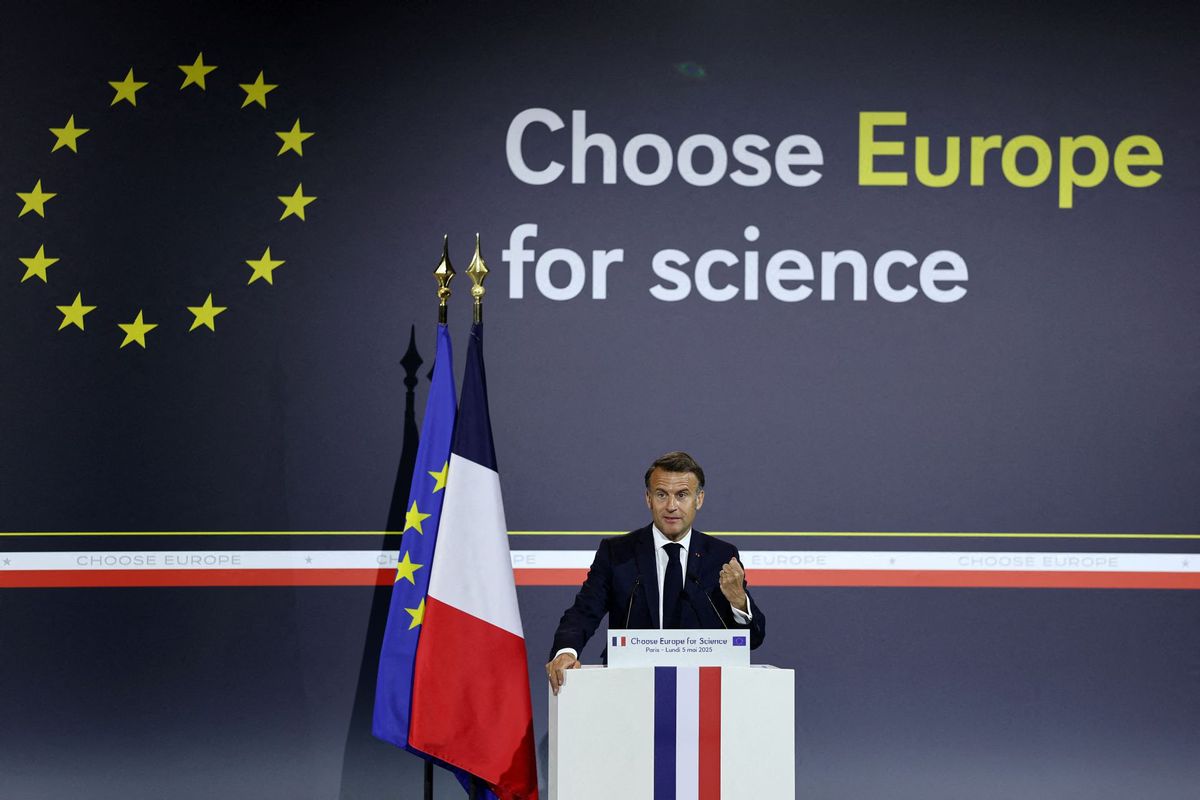Europe aims to lure US-based scientists


France's President Emmanuel Macron and European Commission President Ursula von der Leyen unveiled new initiatives on Monday seeking to attract United States-based scientists affected by federal spending cuts and academic policy shifts under US President Donald Trump's White House.
Speaking at an event entitled Choose Europe for Science at the Sorbonne University in Paris, the leaders announced incentives and protections for researchers considering relocation to Europe, reported Reuters.
Von der Leyen unveiled substantial financial backing for the initiative, stating: "Science is an investment — and we need to offer the right incentives. This is why I can announce that we will put forward a new 500-million-euro ($537 million) package for 2025-2027 to make Europe a magnet for researchers.
"We are choosing to put research and innovation, science and technology, at the heart of our economy. We are choosing to be the continent where universities are pillars of our societies and our way of life," she added.
Macron doubled up on the European message: "If you love freedom, come and do you research here," he said. He called the Trump administration's US science policy a "diktat" and an "error".
"Nobody could have imagined that this great global democracy whose economic model depends so heavily on free science ... was going to commit such an error," he said. "We refuse a diktat consisting of any government being able to say you cannot research this or that."
The European initiative comes as US universities face unprecedented pressure from federal funding cuts and scrutiny of their diversity, equity, and inclusion programs.
France in particular has positioned itself as a key destination for researchers, in fields including health sciences, climate research, artificial intelligence and space, reported The Guardian newspaper.
The country launched its Choose France for Science program in April, creating a dedicated platform for international researchers.
The National Center for Scientific Research, or CNRS, the premier research institution in France, has begun actively recruiting foreign scientists and French researchers working abroad.
CNRS President Antoine Petit noted some French scientists in the US "don't want to live and raise their children in (President) Trump's United States".
France's Higher Education and Research Minister Philippe Baptiste wrote to universities in March, stating: "Many well-known researchers are already questioning their future in the United States. We would naturally wish to welcome a certain number of them."
Several institutions in France have already launched programs, with Aix-Marseille University's Safe Place for Science initiative expecting its first international researchers in June.
The US traditionally offers higher salaries and more substantial research funding through public-private partnerships, presenting an ongoing challenge for European research centers.
After years of watching their top scientific talent migrate to better-funded US universities and research centers, European leaders see this moment as a critical opportunity to reverse the flow, said the Guardian.
The United Kingdom government is also launching a 50-million-pound ($133 million) program aimed at attracting top researchers in response to the Trump administration's restrictive policies on academic freedom in the US.
The initiative will offer funding for research grants and relocation, targeting researchers across disciplines such as life sciences, artificial intelligence, and green energy, reported the Financial Times.
Initially, about ten research teams are expected to be relocated to the UK.
"We're open for business on international science," said the Department for Science, Innovation and Technology, adding that it aims to help "some of the world's best researchers to bring their ideas to life" in the UK.
jonathan@mail.chinadailyuk.com

































